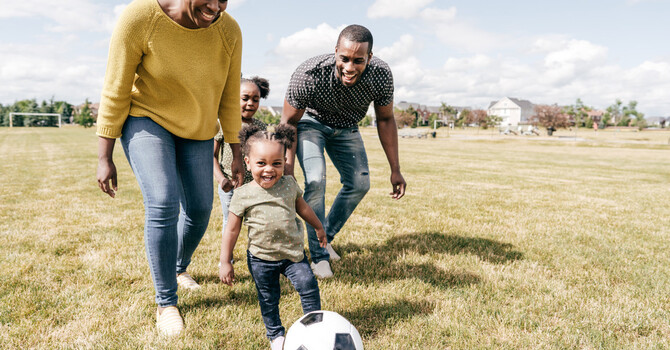Couples counselling (also called relationship counselling or marriage counselling) is a therapeutic process designed to help partners address relationship issues, improve communication, and strengthen their connection. At its best, couples counselling provides a safe, guided space where both partners can explore patterns, deepen understanding of each other, and build healthier ways of relating.
If you’re searching for couples counselling, wondering does couples counselling work, or looking for how to prepare for couples counselling, you’re in the right place. Whether you’re in Calgary and seeking Couples Counselling Calgary or simply want to understand how a relationship counsellor or relationship therapy can support you, read on.
Why seek couples counselling?
Relationships naturally face bumps: miscommunication, mounting resentment, life-transitions (such as having children or career changes), or simply feeling disconnected. A relationship counsellor acts as a neutral third-party who can guide both partners to understand what’s driving the patterns, to develop tools and new ways of relating, and to restore trust and closeness.
Couples counselling is not only for when things are “dire” — many couples attend proactively to enrich their connection or manage small issues before they become bigger. In the context of Calgary counsellor services, you’ll find professionals trained to work with couples across any stage of relationship.
Does couples counselling work?
Short answer: yes — but there are important qualifiers. Research has shown that couples counselling can be effective. For example:
-
A meta-analysis found that couple therapy in controlled trials produced large effect sizes, meaning substantial improvement in relationship adjustment.
-
According to an articles summarising research: “Research shows that couples therapy can be effective … The average person who receives couples therapy is better off after completing sessions than between 70% to 80% of people not receiving treatment.”
-
A review of couple and family interventions concluded that when implemented in community settings, these interventions “can make a significant difference in the lives of couples and families.”
However, it’s important to note that the results in “real world practice” tend to be somewhat smaller than those in ideal research settings.
What this means for you: couples counselling can be very helpful — but outcomes depend on factors such as your commitment, the skill of the counsellor, the fit between both partners and the counsellor, and how well you apply what you learn outside the sessions.
What to expect in couples counselling
Here’s a rough overview of how the process typically works:
-
Initial session(s): You and your partner meet the counsellor (or counsellor and one partner if a hybrid model). You’ll explore what brings you both in, your goals, each partner’s perspective and history, and how your relationship currently functions.
-
Assessment: The counsellor gathers information about patterns (communication, conflict, connection), individual histories, and relationship strengths.
-
Goal-setting and planning: Together you’ll decide on what you’d like to achieve. Maybe it’s better communication, resolving a particular conflict, rebuilding trust, or finding more intimacy.
-
Intervention and skill-building: Sessions may include:
-
Learning communication and conflict resolution skills
-
Exploring underlying emotional needs and attachments
-
Identifying harmful patterns and replacing them with healthier ones
-
Homework: practicing what you learn between sessions
-
-
Review and wrap-up: As you progress, the counsellor will monitor your growth, revisit goals, and prepare you to maintain gains post-therapy.
How to prepare for couples counselling
Entering couples counselling with intention and readiness improves your chances of getting the most out of it. Here are some practical tips:
-
Clarify your motivation: Ask yourself why you are seeking counselling. What outcome do you hope for? This helps both you and the counsellor.
-
Be honest and open: You’ll get the most value if both partners are willing to share and listen (even when it’s uncomfortable).
-
Choose the right counsellor: For Couples Counselling Calgary, ensure the counsellor is experienced with couples, fit your style, licensed or registered, and works in the modality you feel comfortable with (e.g., emotionally focused therapy, cognitive-behavioural couple therapy).
-
Commit to doing the work: Counselling is not passive — you’ll likely be asked to try new behaviours, have conversations outside sessions, and reflect on your part in the dynamics.
-
Schedule regular sessions: Consistency matters. Regular attendance helps build momentum and change.
-
Set aside time for each other: Outside of sessions, create space to engage as partners: talk, connect, experiment with new skills, reinforce what you’re learning.
Relationship therapy in Calgary – what to look for
If you’re searching for relationship therapy or relationship counselling in Calgary, here are extra considerations:
-
Local context: A counsellor familiar with Calgary (and perhaps the surrounding areas like Langley or Greater Vancouver if offering hybrid or online) will be aware of local stressors (weather, work culture, family dynamics) that might impact couples.
-
Hybrid or online options: Many couples benefit from flexibility—whether you live in Calgary or surrounding areas, a counsellor who offers in-person and virtual sessions can help. Research shows online couples therapy can be as effective as in-person.
-
Clear process and transparency: Good counsellors will explain their approach, what to expect, costs, confidentiality, and how they track progress.
-
Strengths and growth-focused: Rather than just fix problems, choose someone who helps you build what already works and grow your connection.
-
Compatibility check: Occasionally you may start with one counsellor and realise the style or fit isn’t right. That’s okay—finding the right fit matters.
Common reasons couples seek counselling
Here are typical issues couples bring into counselling:
-
Frequent or escalating conflict, poor communication
-
Feeling disconnected, lonely or misunderstood within the relationship
-
Transition stresses (childbirth, career changes, moves)
-
Infidelity or trust issues
-
Blended families or step-family dynamics
-
Differences in life goals, financial stress, or parenting disagreements
-
Desire to strengthen the relationship before major changes
Remember: counselling isn’t only for “broken” relationships—it’s also for couples who want to deepen their bond and grow together.
Why choose us for Couples Counselling in Calgary?
At Vitality Chiropractic & Wellness Centre, we offer dedicated couples counselling services grounded in evidence-based approaches and tailored to Calgary’s couples. Whether you’re looking for marriage counselling, relationship therapy, or simply a trusted Calgary counsellor, we help you and your partner move toward healthier connection, better communication, and lasting growth.
Couples counselling is a meaningful investment in your relationship. If you’re wondering does couples counselling work? — yes, research shows it can be effective for the majority of couples who commit. The key is to come prepared, engage openly, and partner with a skilled counsellor who understands the unique dynamics of your relationship. Whether you’re facing a specific challenge or simply seeking to strengthen your partnership, exploring counselling today could be a wise step.



